13-year-old Rajan in rural Madhya Pradesh is determined to study. He takes a secret route to his school. This is his story.
We travelled for three hours on the dusty roads of Dhar district in Madhya Pradesh to reach Bandav village. As our vehicle arrives at the school, a group of excited children gather . We trip out, trying to adjust our eyes to the summer sun and are welcomed by muffled giggles and a ‘Namaste’ chorus.
At the insistence of the teacher Gopal Maliwad, an unruly line forms to introduce themselves to us. “Muskaan”. “Mahi”. “Bhuri”. “Bangu”. The tones alternate between loud, shy and laughing. The children aged between 8 and 14 are students of the Non-Residential School run for children who have dropped out of school.
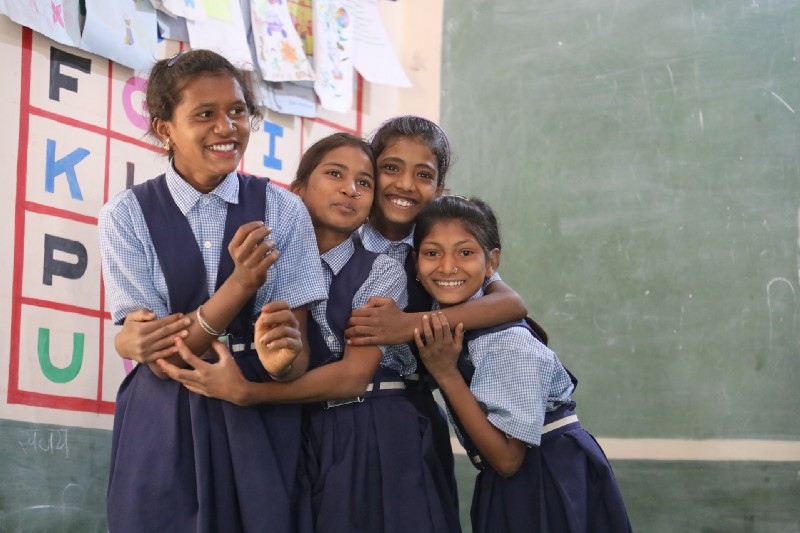
We are here to meet these children and listen to their stories of how the school is changing their lives. During the day, we heard how Muskaan and Mahi didn’t want to come to school and now refuse to miss a day. We admire Bhuri’s colourful salwar kameez, and then come to know that her uniform is out for a wash. Bangu tells us a sad tale of how he escaped being a bonded labourer and loves school now.
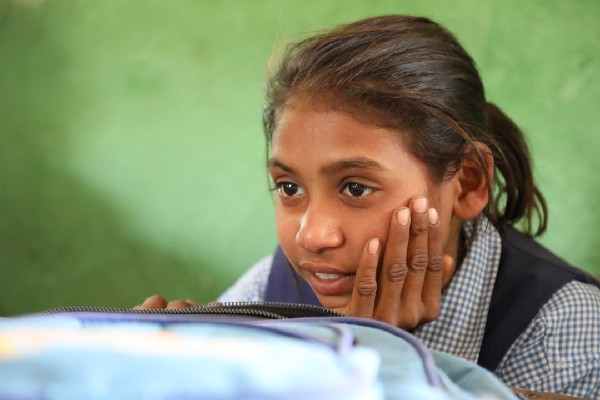
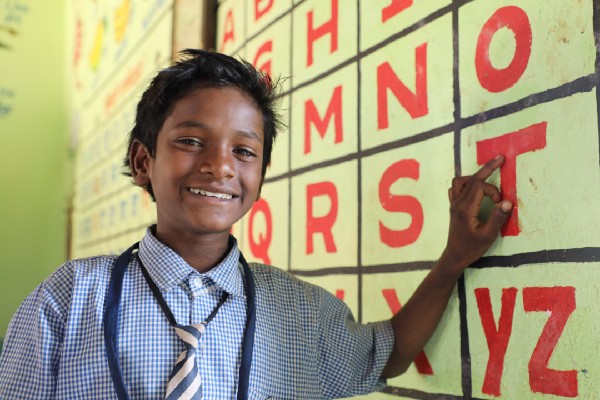
Students at the Non-residential special transit schools are first generation learners.
However, we chose 13-year-old Rajan’s story today as it might bring a smile to your face, despite tinges of sadness.
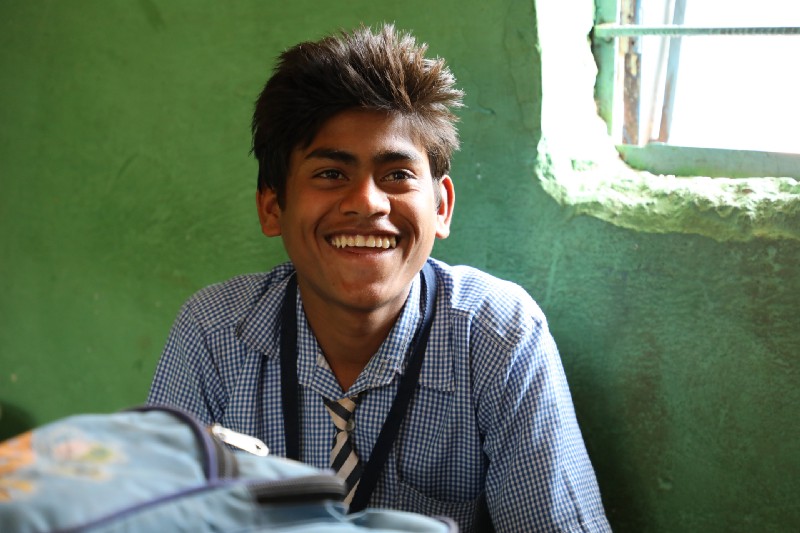
Rajan gives us his best smile!
Brief note about these special schools:
Hand in Hand India runs 4 Non-Residential Special Transit Schools in Tamil Nadu and Madhya Pradesh. In Madhya Pradesh, the schools run in partnership with Humanium an organisation that supports child rights. The Tamil Nadu school is supported by Guardian India as a CSR Project. The schools are primarily meant for children of rural areas who either are too poor to attend school or whose parents are migrant labourers who could not afford schools. Children in rural India are engaged in household jobs, sold as bonded labourers or become part of their family’s farming practises. They are first generation learners.
Rajan’s routine was an unenviable one. He got up at 6 am and took the cattle out grazing. Many hours later, he would come back to a meagre mid-morning meal. His next task was to head to the brick kiln where he worked as a daily wage labourer. Coming back home, Rajan had more cattle duties to attend to. The young boy could only hit the pillow after such a strenuous day and wake up to yet another mundane day.
With nine siblings at home, Rajan never missed being with friends. “We try to eat together and share jokes, laugh together. I love my siblings”, says Rajan. The downside of this large family was that everyone had to contribute to the family income. Rajan’s mother worked as a seasonal labourer while his other siblings worked in mines or brick kilns around the house.
School was not far from Rajan’s thoughts,
“When I am grazing cattle, I sometimes wonder what it would be like to study in school, wear a uniform and read books”.
This was a year ago.
Rajan was spotted one day by a Hand in Hand India social mobilising team, while he was grazing cattle. He was quite despondent when asked about wanting to attend school. He knew, his family situation would not permit him. The school’s teacher, Gopal Maliwad went out of his way to counsel the parents to send Rajan to school. But the answer was a resounding no!
Rajan was however not one to give up.
He devised a plan. A secret route to go to school. Without his parent’s knowledge.
In January 2018, Rajan started attending school. He tells us how he did that, “I found a route to school that will bypass my home and the brick kilns. I initially felt bad to skip grazing the cattle, but I did help on Sundays”.
His parents eventually did find out but realised how serious Rajan was about school and education. The smart uniform and the daily nutritious mid-day meal also helped do the trick of convincing them!
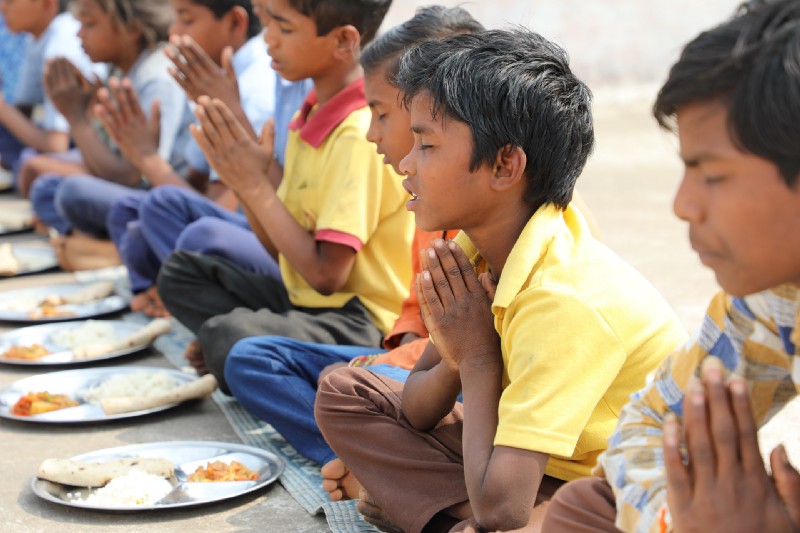
Children praying before their mid-day meal at school.
Rajan is elated, “They are proud of me. Their happiness knows no bounds when they realise I can read and write. I do help my father in grazing cattle on Sundays but studies occupy most of my time”.
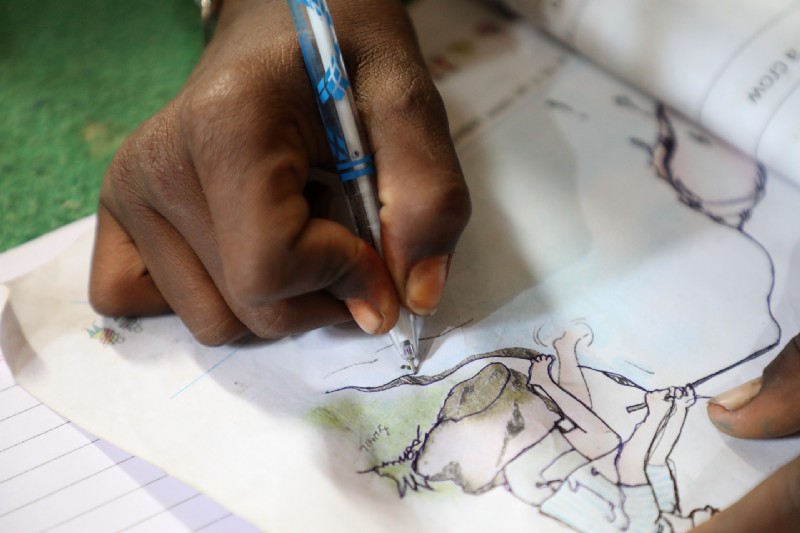
The 20-odd children in the school we visited are all from different backgrounds, impoverished, abused or bonded labourers. One factor however bound them all together — that was the urge to learn. Rajan today reads books fluently and loves mathematics. His dreams big of building a bigger home for his family and giving his parents the comforts they don’t have now.
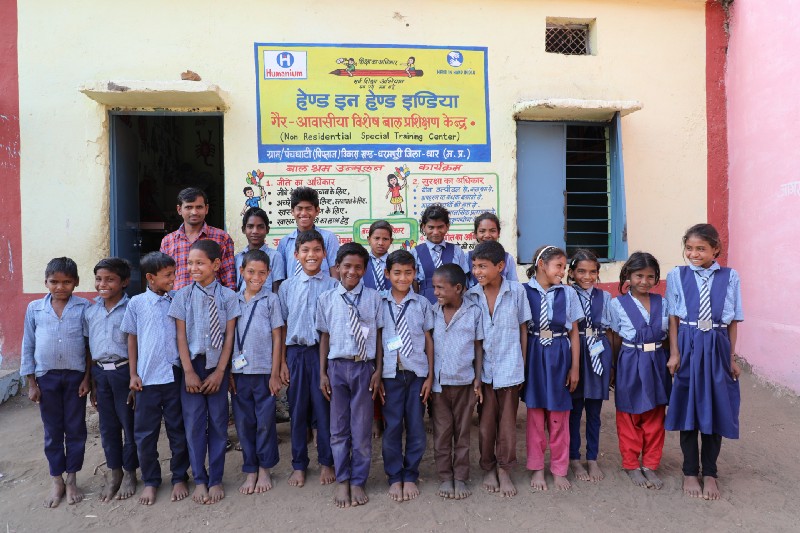
The class with teacher Gopal Maliwad, at one of the Non-residential schools in Dhar, Madhya Pradesh
Hand in Hand India works across India in the area of Child Labour Elimination. Running schools for first-generation rural learners in Tamil Nadu and Madhya Pradesh, Converting more than 1000 panchayats (groups of villages) into child-friendly ones are some of the things we do. So far we have sent more than 3 lakh children into mainstream schools.






